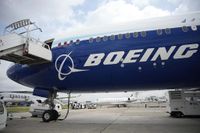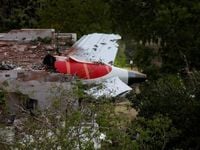In the wake of the tragic Air India Flight 171 crash on June 12, 2025, which claimed 260 lives, including 19 on the ground, aviation regulators in India and South Korea have mandated urgent inspections of fuel control switches on Boeing aircraft. The directive, issued by India’s Directorate General of Civil Aviation on July 14, 2025, targets Boeing 787 Dreamliners and certain Boeing 737 variants operating within the country, demanding inspections be completed and reports submitted by July 21.
The crash, which occurred shortly after takeoff from Ahmedabad, India, has sparked intense scrutiny of the plane’s fuel supply systems. Preliminary investigations by India’s Aircraft Accident Investigation Bureau revealed that the fuel control switches on the doomed Boeing 787-8 Dreamliner had shifted from the “run” to the “cutoff” position within one second, effectively starving both engines of fuel and leading to the catastrophic descent. While the report did not assign blame or clarify how the switches moved during flight, cockpit voice recordings captured a moment of confusion between the pilots: one asked why the fuel had been cut off, and the other insisted he had not done so.
These findings have raised questions about whether human error was involved, although two commercial pilots’ associations in India have strongly rejected any insinuations of pilot suicide or deliberate action. The Indian Commercial Pilots' Association expressed being "deeply disturbed by speculative narratives ... particularly the reckless and unfounded insinuation of pilot suicide." Meanwhile, Air India’s CEO Campbell Wilson reassured staff in an internal memo that the preliminary report found no mechanical or maintenance faults with the aircraft or its engines. He emphasized that all mandatory maintenance had been completed, the fuel quality was normal, and the pilots had passed pre-flight breathalyser tests with no medical concerns.
Despite these reassurances, the investigation spotlighted a 2018 advisory from the United States Federal Aviation Administration (FAA), which recommended—but did not mandate—that operators of Boeing 787s and other models inspect the locking mechanisms of fuel cutoff switches to prevent accidental movement. The advisory was not treated as compulsory, and Air India had not performed these inspections prior to the crash. Maintenance logs showed that the throttle control module, which includes the fuel switches, had been replaced twice on the crashed aircraft—in 2019 and 2023.
Following the crash, India’s Directorate General of Civil Aviation ordered all airlines operating Boeing 787 and certain 737 aircraft to conduct thorough inspections of the fuel control switches. Air India has already inspected about half of its 33 Boeing 787 jets and nearly all its Boeing 737s, with no issues found so far. Other airlines have taken similar precautionary steps: Singapore Airlines and its low-cost subsidiary Scoot completed checks on their Boeing 787 fleets, confirming all switches were functioning properly. Korean Air Lines also proactively began inspections and pledged to comply with any additional requirements from its Ministry of Transport.
The urgency of these inspections is underscored by the fact that the fuel control switches are critical safety components, designed with locking mechanisms to prevent accidental activation. The preliminary report’s finding that both switches were switched off in quick succession shortly after takeoff suggests that such movement was unlikely to be accidental, leading experts to suspect human involvement. However, the investigation remains inconclusive on whether this was due to inadvertent error, mechanical failure, or other factors.
Meanwhile, Boeing faces heightened scrutiny amid a series of recent safety concerns. The company is under investigation by the FAA and the National Transportation Safety Board following incidents such as an Alaska Airlines door plug detaching mid-flight and a United Airlines plane losing a tire shortly after takeoff. In August 2024, Boeing appointed Kelly Ortberg as CEO, replacing Dave Calhoun amid allegations of safety violations. Earlier that year, an FAA audit found Boeing had "failed to comply with manufacturing quality control requirements" multiple times.
Additionally, Boeing settled with the U.S. Department of Justice over its responsibility in two fatal crashes involving 737 MAX aircraft in Indonesia and Ethiopia, which killed over 300 people. The company paid $444.5 million in compensation to victims’ families and a $243.6 million fine. These developments have intensified calls for rigorous oversight and safety assurances from the aviation giant.
The Air India tragedy remains the deadliest aviation disaster on Indian soil, and the investigation continues to unfold. The Indian regulator’s inspection order represents a critical step in preventing future incidents by ensuring the integrity of fuel control systems across fleets. As airlines around the world respond with their own checks and reassurances, the aviation community watches closely, hoping for clarity and enhanced safety in the skies.






